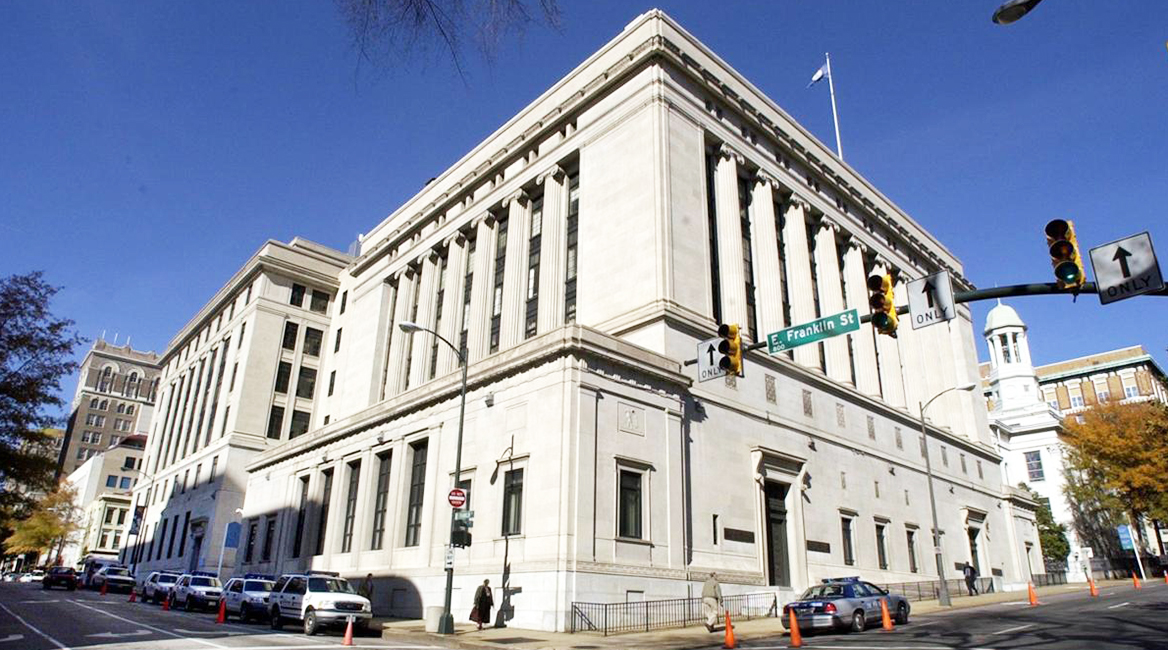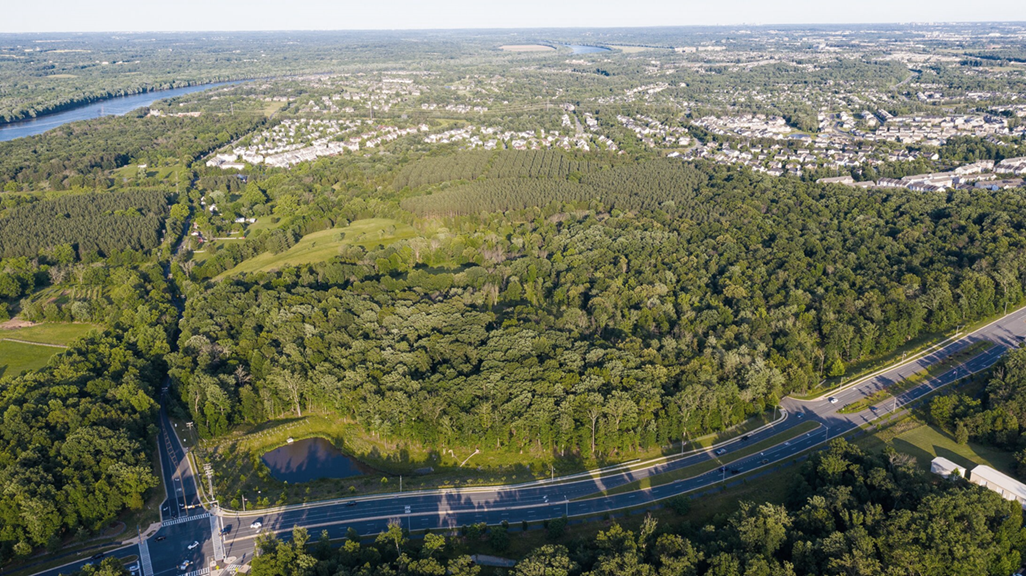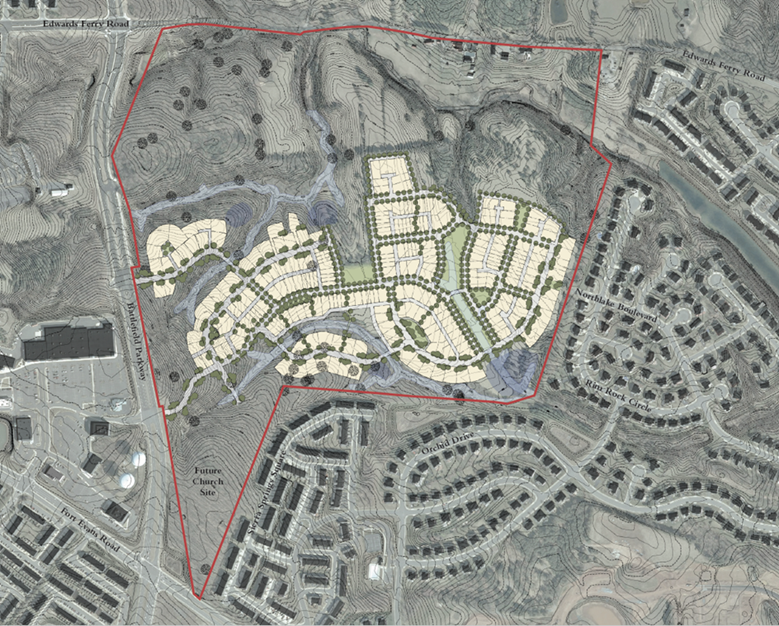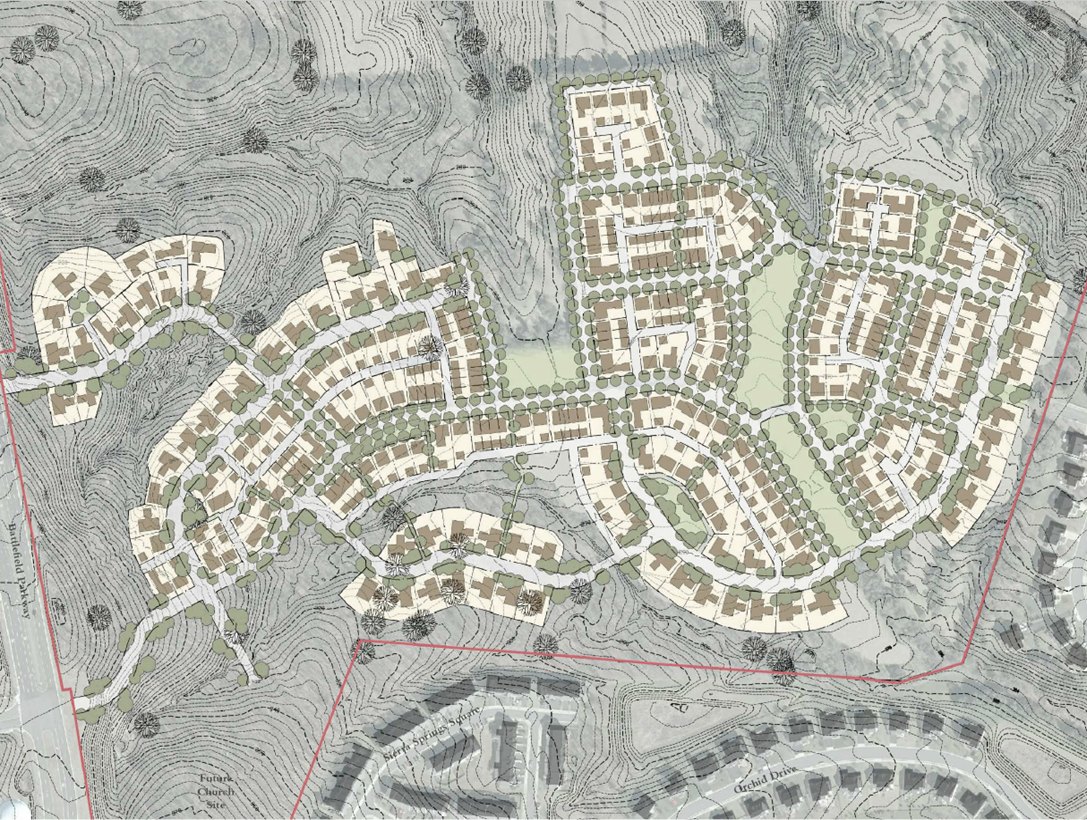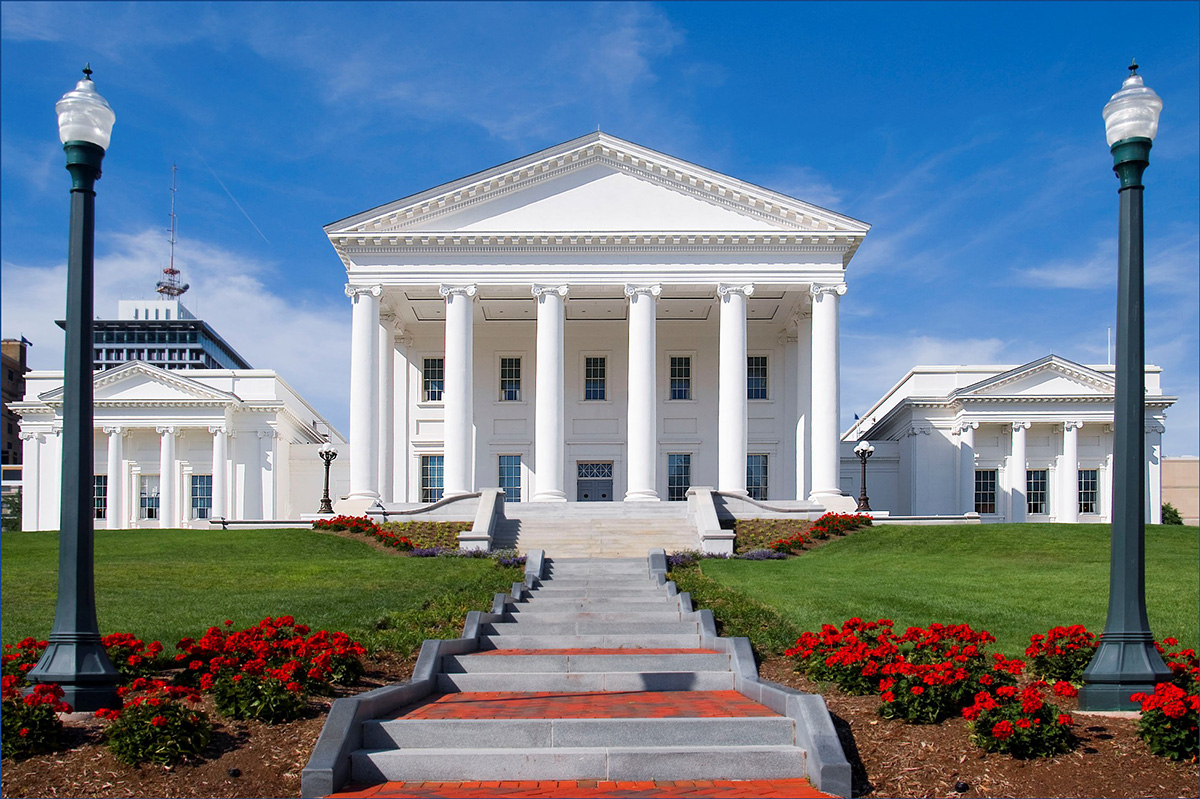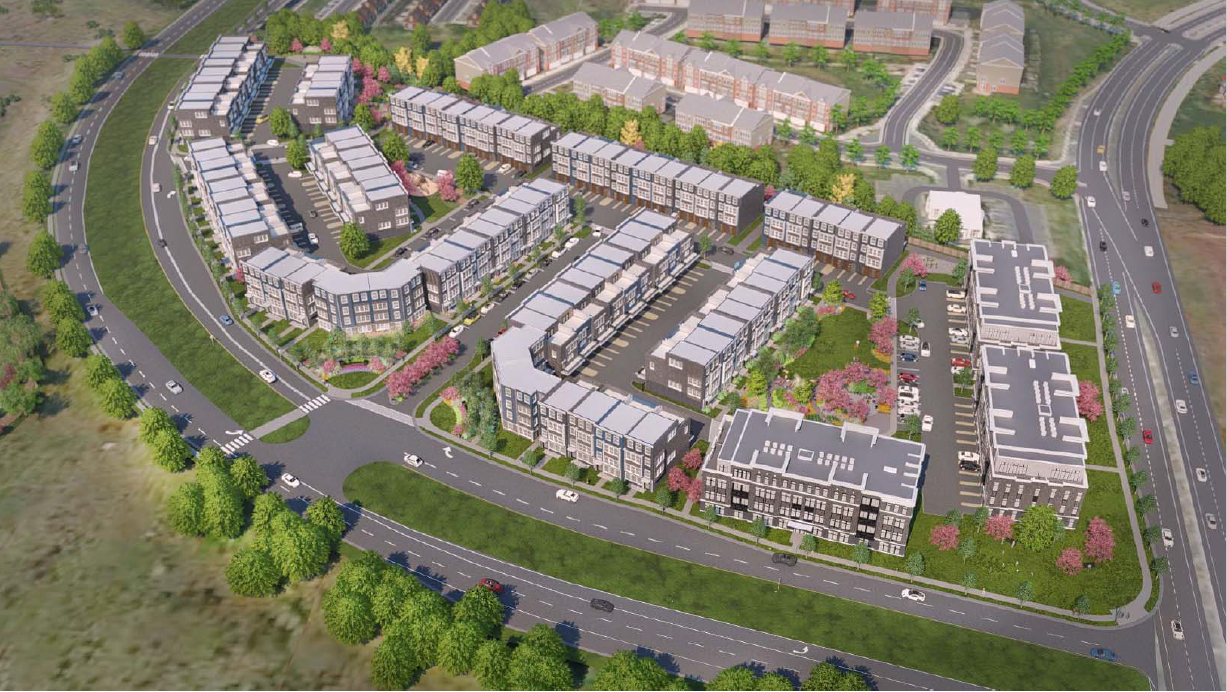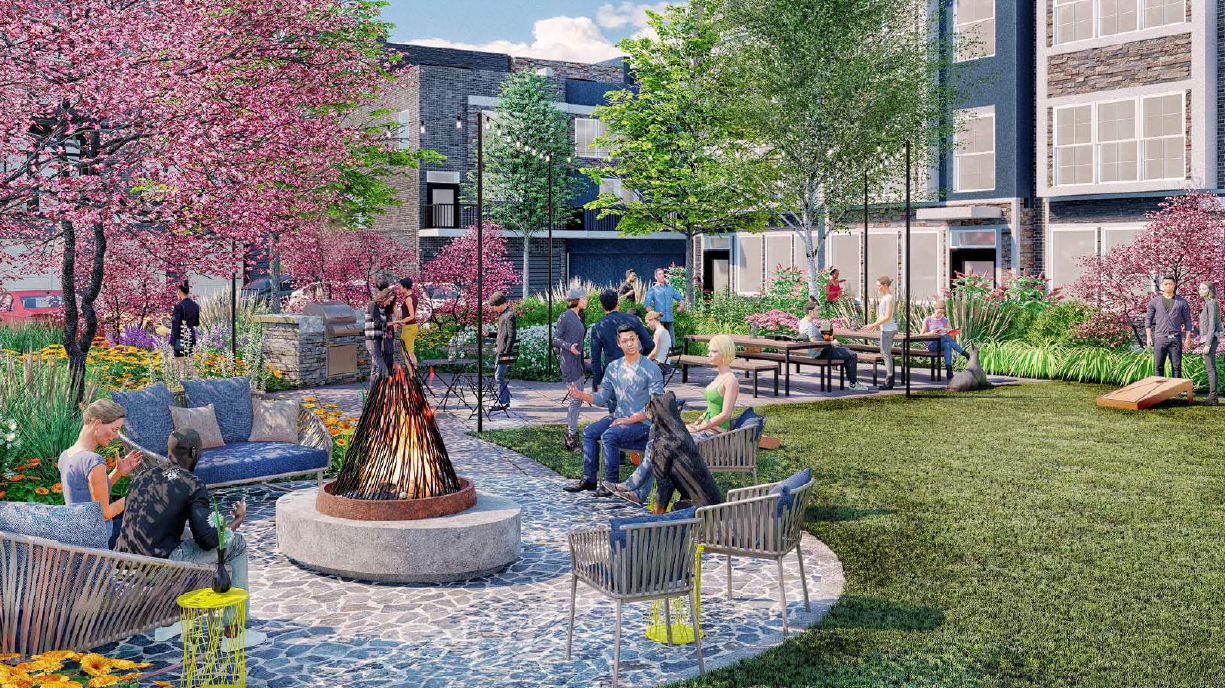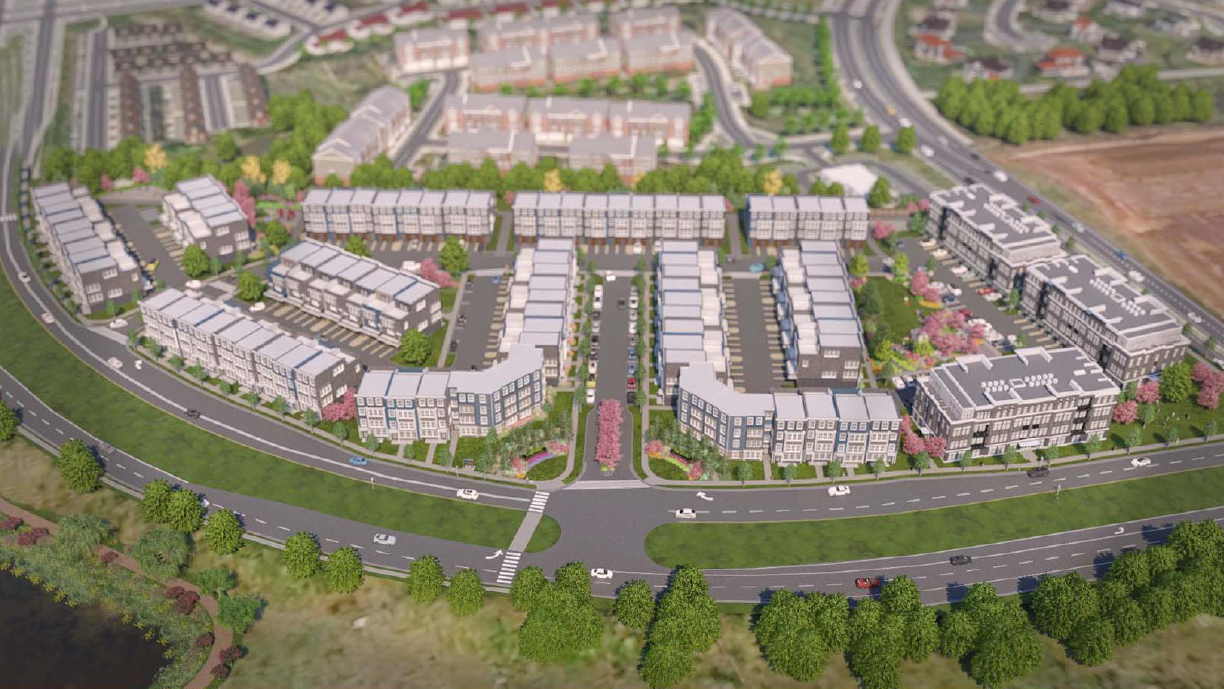Each year at the close of the Virginia General Assembly session, our attorneys provide summaries of new legislation that might impact the local practice of law. Below land use attorney Brian Prater summarizes land use and zoning legislation updates.
Land Use & Zoning Law Updates
By Brian Prater
HB 166 Hearing notice by localities; timely notice related to planning or zoning matter to newspaper, etc.
Introduced by: Barry D. Knight
Hearing notice by localities. Provides that in any instance in which a locality in Planning District 23 has submitted a timely notice of public hearing to a newspaper published or having general circulation in the locality and the newspaper fails to publish the notice, such locality shall be deemed to have met certain notice requirements so long as the notice was published in the next available edition. The bill has an expiration date of July 1, 2022. This bill is identical to SB 869.
HB 370 Zoning appeal, board of; dual office holding.
Introduced by: Robert B. Bell
Board of zoning appeals; dual office holding. Authorizes a member of a board of zoning appeals to be appointed to also serve as an officer of election. This bill is identical to SB 292.
HB 505 Zoning appeals, board of; writ of certiorari.
Introduced by: Barry D. Knight.
Board of zoning appeals; writ of certiorari. Provides that once the writ of certiorari is served in response to a petition from a party aggrieved by a board of zoning appeals decision, the board of zoning appeals shall have 21 days or as ordered by the court to respond.
HB 554 Zoning; wireless communications infrastructure.
Introduced by: Schuyler T. VanValkenburg
Zoning for wireless communications infrastructure. Authorizes a locality to disapprove an application submitted for an administrative review-eligible project or for any zoning approval required for a standard process project that proposes to locate a new structure, or to co-locate a wireless facility, in an area where all cable and public utility facilities are required to be placed underground by a date certain or encouraged to be undergrounded as part of a transportation improvement project or rezoning proceeding as set forth in objectives contained in a comprehensive plan, on grounds that an applicant has not given written notice to adjacent landowners at least 15 days before it applies to locate a new structure in the area.
HB 585 Comprehensive plan; certain localities to promote transit-oriented development.
Introduced by: Elizabeth R. Guzman
Comprehensive plan; transit-oriented development. Requires that each city with a population greater than 20,000 and each county with a population greater than 100,000 consider incorporating into the next scheduled and all subsequent reviews of its comprehensive plan strategies to promote transit-oriented development for the purpose of reducing greenhouse gas emissions through coordinated transportation, housing, and land use planning.
HB 655 Solar photovoltaic projects; special exceptions for solar photovoltaic projects
Introduced by: Steve E. Heretick
Special exception for solar photovoltaic projects. Authorizes a locality to include reasonable regulations and provisions in its zoning ordinance for a special exception for any solar photovoltaic (electric energy) project. The bill authorizes the governing body of such locality to grant a condition that includes (i) dedication of real property of substantial value or (ii) substantial cash payments for or construction of substantial public improvements, the need for which is not generated solely by the granting of a conditional use permit, so long as such proffered conditions are reasonably related to the project. This bill is identical to SB 870.
HB 656 Solar energy projects; national standards.
Introduced by: Steve E. Heretick
Solar energy projects; national standards. Authorizes a locality to include in its zoning ordinance provisions to incorporate generally accepted national standards for the use of solar panels and battery technologies for solar photovoltaic (electric energy) projects. This bill is identical to SB 875.
HB 657 Comprehensive plan; solar facilities review.
Introduced by: Steve E. Heretick
Comprehensive plan; solar facilities review. Provides that certain solar facilities shall be deemed to be substantially in accord with a locality’s comprehensive plan if the locality waives the requirement that solar facilities be reviewed for substantial accord with the comprehensive plan.
HB 726 Comprehensive plan; adoption of disapproval by governing body.
Introduced by: David A. Reid
Comprehensive plan. Extends the time by which a governing body is required to approve or disapprove a locality-initiated comprehensive plan amendment for more than 25 parcels from 90 to 150 days. This bill is identical to SB 746.
HB 929 Subdivision plats; certain approved final plats shall remain valid indefinitely, etc.
Introduced by: Carrie E. Coyner
Subdivision plats. Provides that certain approved final subdivision plats shall remain valid indefinitely if a recorded plat dedicating real property to the locality has been accepted by such grantee.
HB 998 Flood plain; adoption of ordinances.
Introduced by: C.E. Cliff Hayes, Jr.
Adoption of flood plain ordinances. Provides that any locality may by ordinance regulate the activity on, use of, or development of a flood plain in a manner consistent with any state or federal flood plain management programs and requirements.
HB 1101 Affordable housing; certain localities allowed to adopt dwelling unit ordinances.
Introduced by: Betsy B. Carr
Affordable housing dwelling unit ordinances. Allows certain localities to adopt affordable housing dwelling unit ordinances. The governing body of any locality, other than localities to which certain current affordable housing provisions apply, may by amendment to the zoning ordinances of such locality provide for an affordable housing dwelling unit program. Such program shall address housing needs, promote a full range of housing choices, and encourage the construction and continued existence of housing affordable to low-and-moderate-income citizens by providing for increases in density to the applicant in exchange for the applicant’s voluntarily electing to provide such affordable housing. Any local ordinance may authorize the governing body to (i) establish qualifying jurisdiction-wide affordable dwelling unit sales prices based on local market conditions, (ii) establish jurisdiction-wide affordable dwelling unit qualifying income guidelines, and (iii) offer incentives other than density increases, such as reductions or waiver of permit, development, and infrastructure fees, as the governing body deems appropriate to encourage the provision of affordable housing.
The bill provides that any zoning ordinance establishing an affordable housing dwelling unit program may include reasonable regulations and provisions as to any or all of the following: (a) for application of the requirements of an affordable housing dwelling unit program to any site, as defined by the locality, or a portion thereof at one location that is the subject of an application for rezoning or special exception or site plan or subdivision plat that yields, as submitted by the applicant, at an equivalent density greater than one unit per acre and that is located within an approved sewer area; (b) the waiver of any fees associated with the construction, renovation, or rehabilitation of a structure, including building permit fees, application review fees, and water and sewer connection fees; (c) for standards of compliance with the provisions of an affordable housing dwelling unit program and for the authority of the local governing body or its designee to enforce compliance with such standards and impose reasonable penalties for noncompliance, provided that such local zoning ordinance provide for an appeal process for any party aggrieved by a decision of the local governing body; and (d) various other provisions set out in the bill.
Any zoning ordinance establishing such affordable housing dwelling unit program shall adopt the regulations and provisions set out in the bill to establish an affordable housing density bonus and development standards relief program. This bill is identical to SB 834.
SB 24 Agritourism activities; adds horseback riding to definition.
Introduced by: J. Chapman Petersen
Agritourism activities; horseback riding. Adds horseback riding to the definition of “agritourism activity.” Agritourism activities have limited liability for the inherent risks of the activity under certain conditions.
SB 181 Alcoholic beverage control; commercial lifestyle center.
Introduced by: Barbara A. Favola
Alcoholic beverage control; commercial lifestyle center; definition. Reduces from 25 to 10 the minimum number of acres upon which a commercial development must sit in order to qualify for licensure as a commercial lifestyle center.
SB 589 Zoning administrators; notice of decisions and determinations.
Introduced by: Emmett W. Hanger, Jr.
Zoning administrators; notice of decisions and determinations. Requires a zoning administrator to provide notice to an adjacent property owner of any decision or determination by the zoning administrator that could impair the ability of such adjacent property owner to satisfy the minimum storage capacity and yield requirements for a residential drinking well.
SB 647 Zoning; development approvals.
Introduced by: Jennifer B. Boysko
Zoning; development approvals. Provides for the transition of certain existing development approvals when a subject property shifts from one jurisdiction to another due to annexation, boundary adjustment, or other cause. The bill contains a grandfather clause for certain existing provisions.
MUNICIPAL LAW, Generally
HB 106 Numbering on buildings; civil penalty.
Introduced by: Mark L. Cole
Numbering on buildings; civil penalty. Provides that an ordinance that requires buildings to have visible numbering may include provisions for a civil penalty not to exceed $100 for a violation that has not been corrected within 15 days of notice of such violation. Civil penalties assessed under this provision shall be paid into the treasury of the locality where the violation occurred.
HB 150 Derelict residential buildings; civil penalty.
Introduced by: Ibraheem S. Samirah
Derelict residential buildings; civil penalty. Allows certain localities to impose a civil penalty not exceeding $500 per month on owners of derelict residential property that have not submitted a required plan to renovate or demolish the derelict structure. The bill prohibits the total of such fee from exceeding the cost to demolish the building.
HB 246 Law-enforcement agencies; body-worn camera systems.
Introduced by: Mark H. Levine
Local law-enforcement agencies; body-worn camera systems. Requires localities to adopt and establish a written policy for the operation of a body-worn camera system, as defined in the bill, that follows identified best practices and is consistent with Virginia law and regulations, using as guidance the model policy established by the Department of Criminal Justice Services prior to purchasing or deploying a body-worn camera system. The bill also requires localities to make such policy available for public comment and review prior to its adoption. The bill requires the Department to establish a model policy for the operation of body-worn camera systems and the storage and maintenance of body-worn camera system records.
HB 284 Removal of dangerous roadside vegetation; local option.
Introduced by: Joshua G. Cole
Removal of dangerous roadside conditions; local option. Authorizes any locality, by ordinance, to require the owner of any property located adjacent to a right-of-way maintained by the Virginia Department of Transportation to remove any and all trees, tree limbs, shrubs, high grass, or other substance that might dangerously obstruct the line of sight of a driver, be involved in a collision with a vehicle, or interfere with the safe operation of a vehicle. This bill is identical to SB 225.
HB 406 Local government revenues and expenditures; comparative report, filing date.
Introduced by: Shuas Subramanyam
Comparative report of local government revenues and expenditures. Changes the annual deadline for local submittal of the comparative report of local government revenues and expenditures to the Auditor of Public Accounts from November 30 to December 15 and the annual deadline for the statement of the Auditor of Public Accounts showing in detail the total and per capita revenues and expenditures of all localities for the preceding fiscal year from January 31 to February 15.
HB 421 Firearms, ammunition, etc.; control by localities by governing possession, etc., within locality.
Introduced by: Marcia S. “Cia” Price
Control of firearms by localities. Authorizes any locality by ordinance to prohibit the possession or carrying of firearms, ammunition, or components or any combination thereof in (i) any building, or part thereof, owned or used by such locality for governmental purposes; (ii) any public park owned or operated by the locality; (iii) any recreation or community center facility; or (iv) any public street, road, alley, sidewalk or public right-of-way or any other place of whatever nature that is open to the public and is being used by or is adjacent to a permitted event or an event that would otherwise require a permit. Provisions limiting the authority of localities and state governmental entities to bring lawsuits against certain firearms manufacturers and others are also repealed. The bill also provides that any firearm received by the locality pursuant to a gun buy-back program shall be destroyed by the locality unless the person surrendering such firearm requests in writing that such surrendered firearm be sold. The provisions of the bill do not apply to the activities of a Senior Reserve Officers’ Training Corps program operated at a public or private institution of higher education or (ii) any intercollegiate athletics program operated by a public or private institution of higher education and governed by the National Collegiate Athletic Association or any club sports team recognized by a public or private institution of higher education where the sport engaged in by such program or team involves the use of a firearm. The bill contains technical amendments. This bill is identical to SB 35.
HB 465 Transportation companies, certain; local regulation.
Introduced by: Mark L. Keam
Local regulation of certain transportation companies. Extends from January 1, 2020, to October 1, 2020, the prohibition on offering motorized skateboards or scooters, bicycles, or electric power-assisted bicycles for hire in any locality that has not enacted any licensing ordinance, regulation, or other action regulating such business. The bill clarifies that localities are authorized to create or amend such ordinances, regulations, or actions even after any such business is operating in the locality and exercise authority otherwise authorized by law. The bill contains an emergency clause.
HB 466 Business Licenses; certain localities allowed to waive requirements.
Introduced by: Mark L. Keam
Business license waivers. Allows localities with a population greater than 50,000 to waive license requirements for businesses with gross receipts of $200,000 or less. Current law limits such waiver to businesses with gross receipts of less than $100,000.
HB 506 County manager plan; election of board members by instant runoff voting.
Introduced by: Patrick A. Hope
County manager plan; election of board members by instant runoff voting. Provides that, in a county operating under the county manager plan of government (Arlington County), elections to nominate candidates for and to elect candidates to the board of supervisors may be conducted by instant runoff voting, which the bill describes as the method of casting and tabulating votes in which (i) voters rank candidates in order of preference, (ii) tabulation proceeds in rounds such that in each round either a candidate or candidates are elected or the last-place candidate is defeated, (iii) votes for voters’ next-ranked candidates are transferred from elected or defeated candidates, and (iv) tabulation ends when the number of candidates elected equals the number of offices to be filled. The bill provides that the State Board of Elections may promulgate regulations governing elections determined by instant runoff voting. The bill provides that any costs incurred by the Department of Elections related to technological changes necessary for the implementation of ranked choice voting pursuant to the bill shall be charged to the localities exercising the option to proceed with ranked choice voting.
HB 515 Urban County executive form of government; board of social services.
Introduced by: David L. Bulova
Urban county executive form of government; board of social services. Requires a county operating under the urban county executive form of government (Fairfax County) to designate an additional seat on the board of social services for a qualified citizen of each city to which the county is contractually obligated to provide social services.
HB 534 Disposable plastic bags; local tax.
Introduced by: Betsy B. Carr
Local disposable plastic bag tax. Authorizes any county or city, beginning no earlier than January 1, 2021, to impose a tax of five cents per bag on disposable plastic bags provided to consumers by certain retailers, with certain bags being exempt from the tax. The bill allows every retailer that collects the tax to retain a portion of the five-cent tax and provides that the revenue accruing to the county or city shall be used for certain purposes, including environmental cleanup and the provision of reusable bags. The measure authorizes the Tax Commissioner to administer the tax. This bill is identical to SB 11.
HB 582 Employees of local governments; collective bargaining.
Introduced by: Elizabeth R. Guzman
Labor and employment; collective bargaining; employees of counties, cities, and towns. Permits counties, cities, and towns to adopt local ordinances authorizing them to (i) recognize any labor union or other employee association as a bargaining agent of any public officers or employees, except for Constitutional officers and their employees, and including public school employees and (ii) collectively bargain or enter into any collective bargaining contract with any such union or association or its agents with respect to any matter relating to them or their employment. The bill provides that for any governing body of a county, city, or town that has not adopted an ordinance or resolution providing for collective bargaining, such governing body is required, within 120 days of receiving certification from a majority of public employees in a unit considered by such employees to be appropriate for the purposes of collective bargaining, to take a vote to adopt or not adopt an ordinance or resolution to provide for collective bargaining by such public employees and any other public employees deemed appropriate by the governing body. The bill provides that the prohibition against striking for public employees applies, irrespective of any such local ordinance. This bill is identical to SB 939.
HB 696 Local human rights ordinances; sexual orientation and gender identity.
Introduced by: Danica A. Roem
Local human rights ordinances; sexual orientation and gender identity. Provides that localities may prohibit discrimination in housing, employment, public accommodations, credit, and education on the basis of sexual orientation and gender identity.
HB 738 County board of supervisors; presiding officers, terminology.
Introduced by: David A. Reid
Presiding officer of county board of supervisors; terminology. Specifies that the presiding officer of a board of supervisors shall be called “chairman,” “chairwoman,” “chair,” “chairperson,” or “chair-at-large,” in the presiding officer’s discretion.
HB 757 Public employment; limitations on inquiries by state agencies and localities regarding arrests.
Introduced by: Lashrecse D. Aird
Public employment; limitations on inquiries by state agencies and localities regarding criminal arrests, charges, or convictions. Prohibits state agencies and localities from including on any employment application a question inquiring whether the prospective employee has ever been arrested for, charged with, or convicted of any crime. The bill prohibits asking a prospective employee if he has ever been arrested or charged with or convicted of any crime unless the inquiry takes place during or after a staff interview of the prospective employee. The prohibition does not apply to applications for employment with law-enforcement agencies or positions related to law-enforcement agencies. The prohibition also does not apply to applications for state agency positions designated as sensitive or to state agencies that are expressly permitted to inquire into an individual’s criminal arrests or charges for employment purposes pursuant to any provision of federal or state law. For localities, the prohibition also does not apply to positions for employment by the local school board. This bill incorporates HB 140.
HB 760 Annual local audit; enforcement mechanism, civil penalty.
Introduced by: Lashrecse D. Aird
Annual local audit; enforcement; civil penalty. Provides an enforcement mechanism if a locality that is late in completing its required audit fails to give proper notification of the delayed audit. Such enforcement may include a writ of mandamus and a civil penalty of between $500 and $2,000.
HB 785 Localities; authority to levy taxes.
Introduced by Vivian E. Watts
Local tax authority. Modifies or eliminates several restrictions that apply to taxes imposed by counties, and establishes a new restriction on cigarette taxes imposed by any locality. The bill authorizes most counties to impose an admissions tax, not to exceed a 10 percent rate. Under current law, only certain counties may impose an admissions tax. The bill eliminates the limit on the rate of transient occupancy tax that a county may impose. The bill requires that any revenue attributable to a rate over two percent but not exceeding five percent must be dedicated to tourism marketing. The provisions related to the transient occupancy tax have a delayed effective date of May 1, 2021. Under current law, all counties may impose a transient occupancy tax of up to two percent, and certain counties may impose it up to a higher maximum rate. The bill authorizes any county to impose a cigarette tax up to a maximum rate of 40 cents per pack. It also provides that any locality that imposes such tax at a rate higher than 40 cents per pack may not increase such rate. The provisions related to the cigarette tax have a delayed effective date of July 1, 2021. Under current law, only certain counties may impose a cigarette tax, and cities and towns may impose such tax with no limit on the rate. The bill authorizes any county to impose a food and beverage tax of up to six percent and eliminates the requirement that a county hold a referendum before imposing such tax. Under current law, all counties may impose the tax after a referendum but the rate may not exceed four percent. This bill is identical to SB 588.
HB 906 Entitlement to sales tax revenues from certain public facilities; authorized localities.
Introduced by: C.E. Cliff Hayes, Jr.
Entitlement to sales tax revenues from certain public facilities; authorized localities and facilities; sunset. Adds the City of Chesapeake to the list of localities that are authorized to issue bonds for the construction of public facilities and retain sales and use tax revenue generated within such facilities to pay off such bonds. The bill adds outdoor amphitheater to the list of authorized public facilities, provided that a locality owns, wholly or partly, and contributes to the construction of such amphitheater, and extends until July 1, 2024, the period of time during which authorized localities may issue bonds for the construction of public facilities and retain sales and use tax revenue generated within such facilities to pay off such bonds. Under current law, such authority expires on July 1, 2020. This bill is identical to SB 163.
HB 1021 Personal property tax; farm machinery, classification of forest harvesting.
Introduced by: Les R. Adams
Personal property tax; forest harvesting machinery and equipment. Provides that a locality may exempt from tangible personal property taxes certain farm machinery and farm implements, which shall include equipment and machinery used for forest harvesting and silvicultural activities.
HB 1103 Ranked choice voting; elections for local governing bodies, local option pilot program.
Introduced by Sally L. Hudson
Ranked choice voting; elections for local governing bodies; local option pilot program. Provides that elections for local governing bodies may be conducted by ranked choice voting, which the bill defines as the method of casting and tabulating votes in which (i) voters rank candidates in order of preference, (ii) tabulation proceeds in rounds such that in each round either a candidate or candidates are elected or the last-place candidate is defeated, (iii) votes for voters’ next-ranked candidates are transferred from elected or defeated candidates, and (iv) tabulation ends when the number of candidates elected equals the number of offices to be filled. The bill allows any local governing body to decide to conduct such election by ranked choice voting and requires any such decision to be made in consultation with the local electoral board and general registrar and by a majority vote of the governing body. The bill authorizes the State Board of Elections to promulgate regulations for the proper and efficient administration of elections determined by ranked choice voting. The bill provides that any costs incurred by the Department of Elections related to technological changes necessary for the implementation of ranked choice voting pursuant to the bill shall be charged to the localities exercising the option to proceed with ranked choice voting. The bill has a delayed effective date of July 1, 2021, and sunsets on July 1, 2031.
HB 1213 Summonses; authority of local government employees to issue for violations of local ordinances.
Introduced by Steve E. Heretick
Authority of local government employees to issue summonses for misdemeanor violations of local ordinances. Permits localities to appoint and train local government employees to enforce local ordinances by issuing summonses for misdemeanor violations of ordinances that are within the scope of the employee’s employment with the exception of traffic offenses and those offenses set forth in Title 18.2, Crimes and Offenses Generally. The bill provides that such employees shall not have the power and authority of constables at common law and their power shall be limited to issuing such summonses in their locality.
HB 1267 Land bank entities; planning district commissions.
Introduced by M. Keith Hodges
Land bank entities; planning district commissions. Permits localities to designate a planning district commission to carry out the functions of a land bank entity. Currently, localities may create an authority or designate certain existing nonprofit organizations to carry out the functions of a land bank entity.
HB 1385 Insurance benefits; certain retired employees of political subdivisions.
Introduced by: James A. “Jay” Leftwich
Insurance for certain retired employees of political subdivisions. Allows localities to extend certain insurance benefits to retired employees of political subdivisions. This bill is identical to SB 349.
HB 1434 Local tax; amount of exemption for solar energy equipment.
Introduced by: Jerrauld C. “Jay” Jones
Local tax exemption; solar energy equipment. Changes the local property tax exemption for solar energy projects from an 80 percent exemption for the life of the project to a step down scale of an 80 percent exemption in the first five years, 70 percent in the second five years, and 60 percent for all remaining years in service. The change applies to solar energy projects that are either (i) projects greater than 20 megawatts and less than 150 megawatts for which an initial interconnection request form has been filed with an electric utility or a regional transmission organization after January 1, 2015, and first in service on or after January 1, 2017, and (ii) projects equaling more than five megawatts and less than 150 megawatts for which an initial interconnection request form has been filed on or after January 1, 2019. The bill provides that if a locality assesses a revenue share on a project, the step down scale shall not apply. The bill extends the sunset date after which new projects may not qualify for the exemption from January 1, 2024, to July 1, 2030. The bill is identical to SB 763.
HB 1534 Town taxes; collection by county.
Introduced by: Ibraheem S. Samirah
Collection of town taxes by county. Authorizes the board of supervisors of any county that has adopted the urban county executive form of government to enter into agreements with towns located partially or wholly within such county for the collection and enforcement of real or personal property taxes by the county official responsible for assessment or collection of taxes. The authority granted to such counties is similar to authority granted to Loudoun County under existing law. This bill is identical to SB 649.
HB 1675 Solar energy facilities; definitions, siting agreement with host locality.
Introduced by: M. Keith Hodges
Siting of solar facilities in economically disadvantaged localities. Requires any applicant for a solar facility to give to the host locality written notice of the applicant’s intent to locate a solar facility in an opportunity zone, defined in the bill, in such locality and request a meeting. Such applicant shall meet, discuss, and negotiate a siting agreement with such locality. The siting agreement may include terms and conditions, including mitigation of any impacts of such solar facility and financial compensation to the host locality to address various capital needs. If the parties to the siting agreement agree upon the terms and conditions of a siting agreement, the host locality shall schedule a public hearing for the purpose of consideration of such siting agreement. If a majority of a quorum of the members of the governing body present at such public hearing approve of such siting agreement, the siting agreement shall be executed by the signatures of (i) the chief executive officer of the host locality and (ii) the applicant or the applicant’s authorized agent. The siting agreement shall continue in effect until it is amended, revoked, or suspended. The provisions of the bill shall not apply to any solar facility that has received zoning and site plan approval, preliminary or otherwise, from the host locality on or before January 1, 2020.
HB 1679 Business licenses; acceptable identification.
Introduced by: Glenn R. Davis
Business licenses; acceptable identification. Provides that for any application for a business license issued by a locality under its business, professional, and occupational license taxing authority, the locality shall not require an applicant to provide a social security number if the applicant provides his federal employer identification number instead. Further, if a valid federal employer identification number is provided, the locality shall not be required to determine the residency status of the applicant.
HB 1688 Cemeteries; grass cutting on land used for interment of human remains.
Introduced by: Delores L. McQuinn
Cemeteries; grass cutting. Exempts land used for the interment of human remains owned by an individual, family, property owners’ association, or church from a local ordinance requiring certain owners of property to cut the grass, weeds, and other foreign growth on such property.
SB 941 Local government meetings; weather.
Introduced by: Mamie E. Locke
Local government meetings; weather. Authorizes any political subdivision, board of zoning appeals, or local government board, commission, or authority, by resolution adopted at a regular meeting, to fix the day or days to which a regular meeting shall be continued if the chairman, or vice-chairman if the chairman is unable to act, finds and declares that weather or other conditions are such that it is hazardous for members to attend the regular meeting. The bill requires that such findings be communicated to the members and the press as promptly as possible and that all hearings and other matters previously advertised be conducted at the continued meeting, and no further advertising is required.
SB 977 Local governing body meetings; public comment, during a regular meeting at least quarterly.
Introduced by: David R. Suetterlein
Local governing body meetings; public comment. Requires a governing body to provide members of the general public with the opportunity for public comment during a regular meeting at least quarterly.
